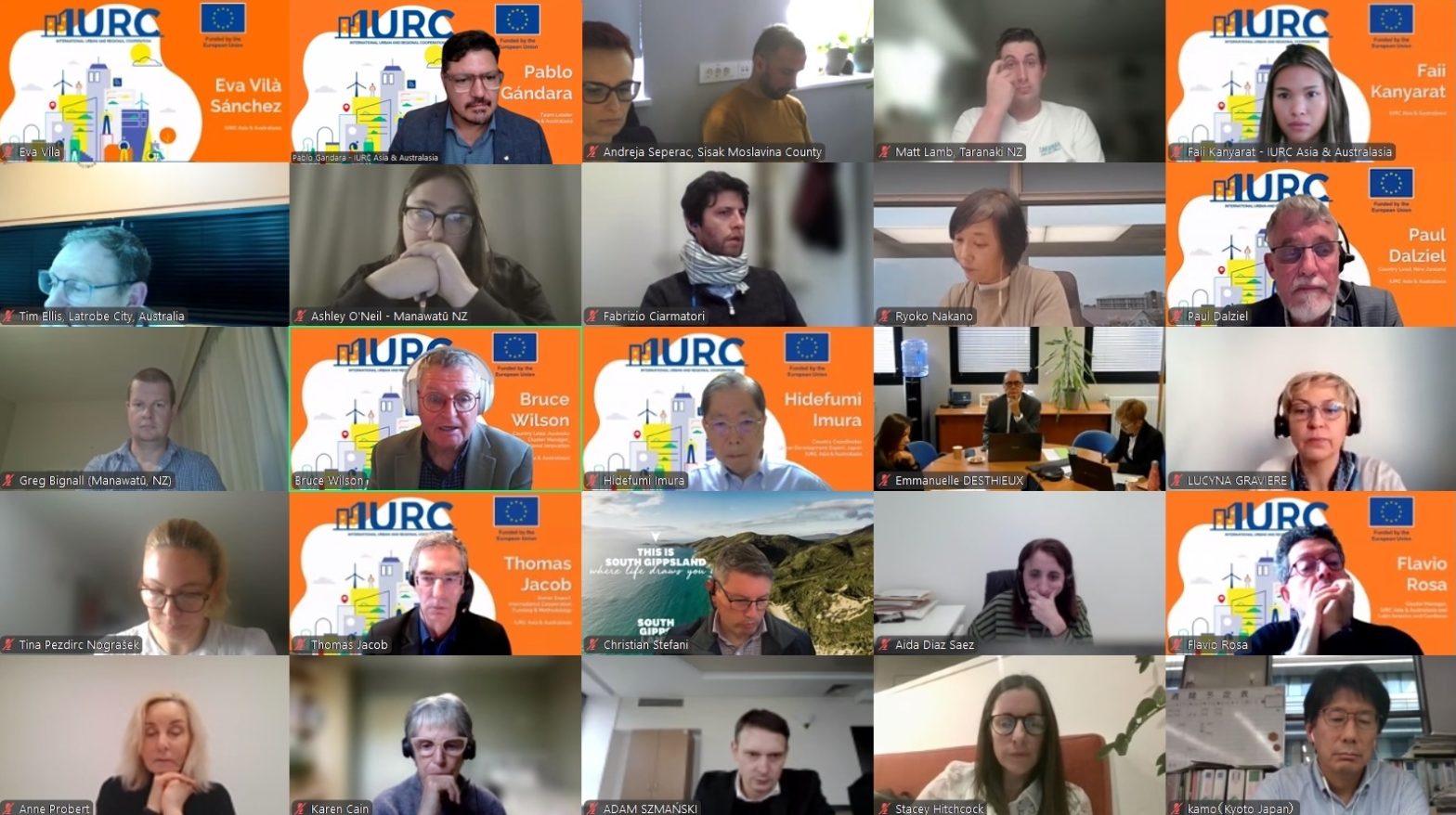More than 50 regional development experts joined the Region-to-Region Cooperation on Innovation webinar on 1 October 2025, marking the start of the IURC Asia & Australasia Thematic Network breakout sessions. Divided into four clusters—Industrial Modernisation, Agri-Food, Clean Energy, and Blue Economy—participants exchanged ideas on pilot actions, key stakeholders, and implementation methods to advance regional cooperation and innovation.
Moderated by Pablo Gándara, Bruce Wilson, Paul Dalziel and Eva Vila, the session aimed to define practical steps toward regional cooperation action plans, with draft versions expected by March 2026. Participants were also briefed on the upcoming Smart City Expo World Congress (SCEWC) in Barcelona (4–6 November 2025), where regional clusters will continue their collaboration through thematic networking, breakout sessions, and pilot project discussions.
Industrial Modernisation
Moderated by Pablo Gándara, this breakout brought together representatives from 11 regions, including Gippsland (Latrobe City), Taranaki, Aichi, Hiroshima, Auvergne-Rhône-Alpes, Île-de-France, Emilia-Romagna, Basque Country, Sisak County, and Central Macedonia. Discussions focused on industrial diversification, digitalisation, sustainable construction materials, and emerging industries like gaming/e-sports. Regions shared their experiences transitioning from traditional sectors—such as coal—and aligning investments with their RIS3 strategies. All stressed the importance of connecting strong innovation ecosystems with universities and entrepreneurial hubs.
Agri-Food
Led by Bruce Wilson, nine regions—from Europe, Japan, Australia, and New Zealand—explored innovations ranging from robotics and automation in agriculture to branding strategies for international markets. Participants discussed reducing food waste, circular economy models, and logistics hubs for sustainable food systems. Many regions already have established quadruple helix structures connecting academia, industry, government, and civil society to enhance food system resilience and innovation.
Clean Energy
Facilitated by Paul Dalziel, the Clean Energy cluster brought together seven regions, focusing on two main themes: just transitions away from fossil fuels and the growth of hydrogen technology. Participants examined strategies for regional energy mapping, hydrogen market development, and bioenergy and offshore wind opportunities. The session also addressed how regions could position themselves as national “Hydrogen Valleys” by integrating innovation, investment, and policy efforts.
Blue Economy
Facilitated by Eva Vila, Christian Stefani from Gippsland shared its vision as the site of Australia’s first offshore wind zone, highlighting a “once-in-a-generation transformation.” The discussion centred on port infrastructure conversion, skills development, and multilevel governance. With a national goal of achieving 2 GW of offshore wind power in Victoria by 2032, participants underscored the importance of partnerships with European and Asian regions experienced in offshore wind development.
Looking Ahead: Smart City Expo World Congress
The session concluded with preparations for the IURC Networking Event, to be held on the occasion of the Smart City Expo World Congress in Barcelona, where IURC regions will showcase their pilot actions and partnerships across various thematic areas. The event will feature networking sessions, site visits, and thematic presentations—an ideal platform for advancing Region-to-Region cooperation on innovation, sustainability, and economic transition.
